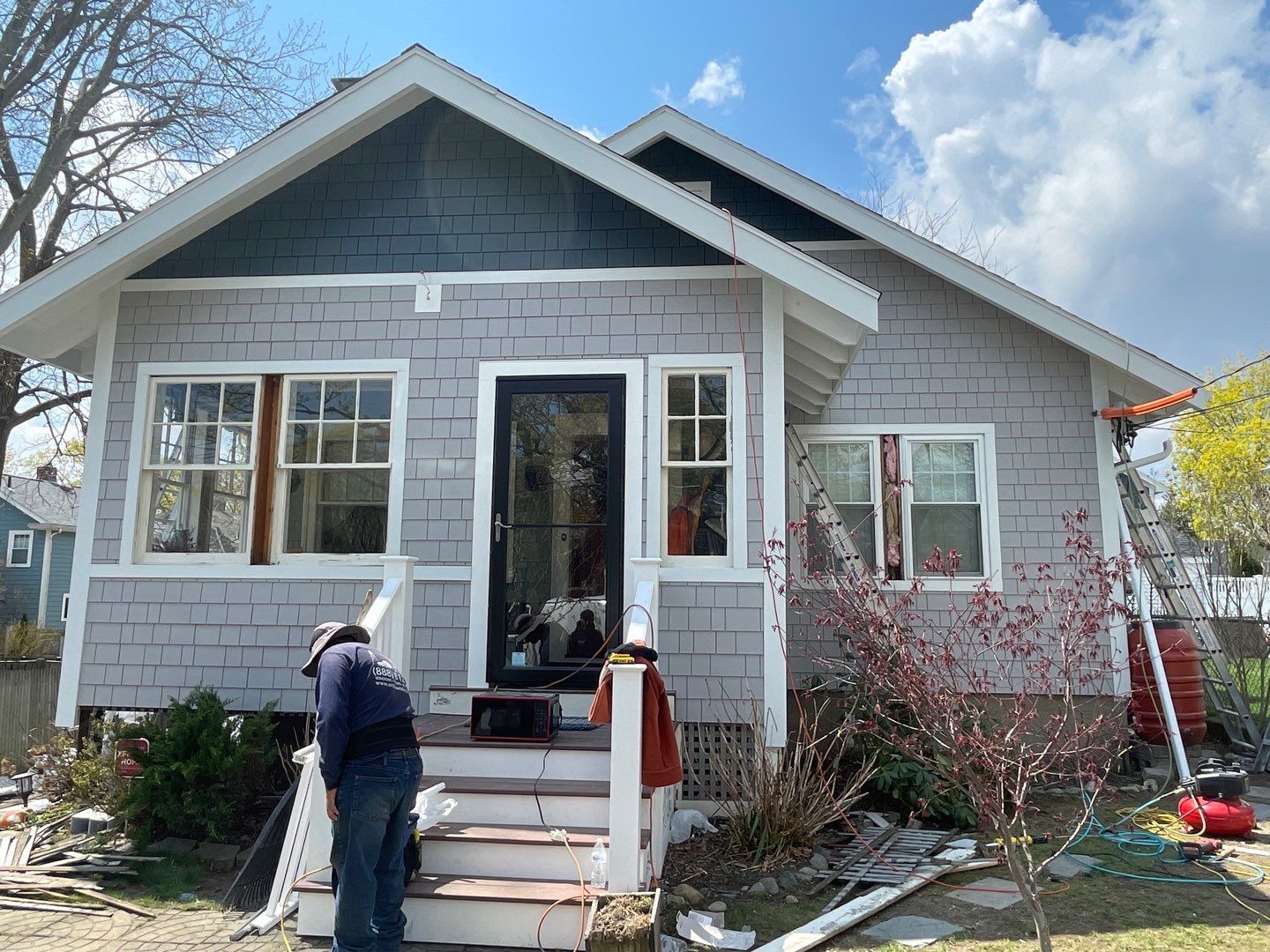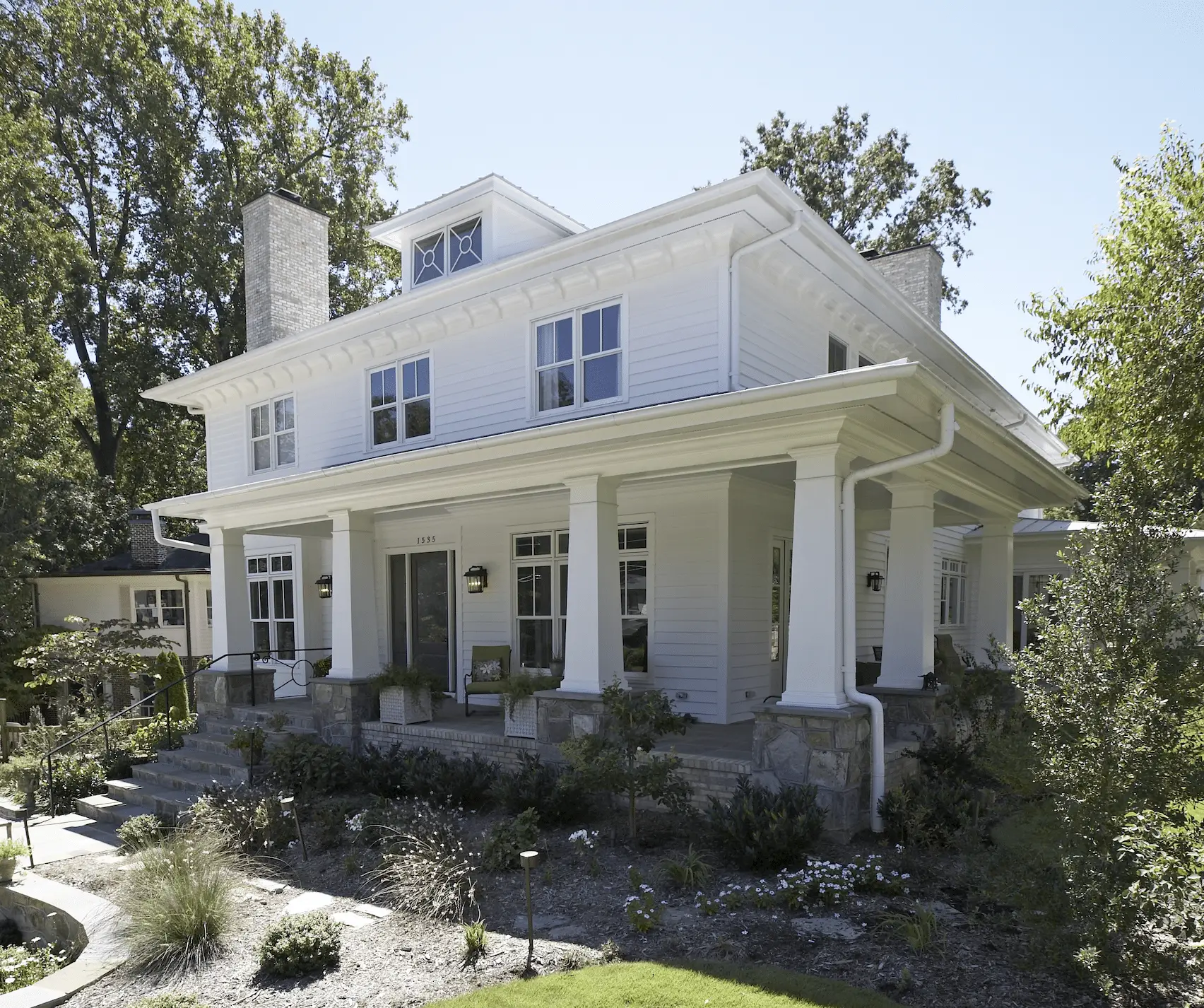Did you know that there are over 350,000 house fires every year in the United States? Here in coastal New England, house fires are most prevalent during the spring season when strong winds blow off the coast. It’s a time of year when you’ll want to think about home wildfire protection for peace of mind. However, the truth is that you need home wildlife protection all year long–especially since December and January are peak times for house fires.
If you worry about house fires, you can have peace of mind when you install siding that can potentially save your life. But is James Hardie one of those fire resistant building materials, and how can it protect your home in the event of a fire?
Let’s talk about how James Hardie takes the heat and what you need to know about fire resistant siding.

What Does Fire Resistant Mean?
Let’s first discuss the meaning of fire resistant. When a building material is fire resistant, it means that the material contains the fire in a specific area to slow the spread. The building material will continue to burn for a specific amount of time–for example, 1 hour.
After that timeframe, the fire will continue to spread through the home.
Is James Hardie Fire Resistant?
Now here’s the big question–is James Hardie fire resistant? Hardie® is a fiber cement product. Although it’s installed with nails, Hardie® performs closely to brick, stucco, and stone. The characteristics of these building products offer fire, moisture, and insect resistance. Hardie® is Class-A fire-resistant house materials.
How Does Hardie Perform in a House Fire?
Here’s how fiber cement works during a house fire. James Hardie will not ignite when exposed to a direct flame. It also will not contribute fuel to a fire. Essentially, you can compare Hardie® to a cooking pan. You can expose it to heat and it won’t burn. But you’ll need an interior wallboard to resist burning for 1-hour to buy you time.
“The only reason why we are alive today and that our own home wasn’t engulfed was thanks to your product,” -Simone V., homeowner and fire survive. Source: James Hardie®.
How Does Hardie® Compare to Other Fire-Resistant House Materials?
Not all siding is created equal when it comes to fire ratings. The most popular siding options here in New England include fiber cement, wood, and vinyl. Let’s take a look at how each of these products performs during a house fire.

Vinyl Siding Slows the Spread of Fire
Like James Hardie, CraneBoard® vinyl siding will help slow the spread of a fire. Vinyl will not melt until it reaches 750 degrees F.
Wood Catches Fire and Spreads it Quickly
When a home with wood siding catches on fire, it can be devastating. That’s because flames spread like–well, wildfire–when it comes in contact with wood. Lumber also ignites at a lower temperature than vinyl, coming in at 500 degrees F compared to 750 F for vinyl.
And the terrifying reality is that a house can burn down to the ground within 5 minutes. This leaves little to no time to escape.
James Hardie® Siding Can Save Lives
Since Hardie® is non-combustible, there is documentation of this fiber cement siding saving lives during a house fire. It’s also Class-A fire-resistant in accordance with ASTM E84.
Local New England Homes with Fire Resistant James Hardie Siding
It’s exciting to see the possibilities of a new home transformation with James Hardie. Not only can you bring your dream home to life, you’ll also protect it from sleet, snow, heat, and any other type of weather that we experience here in New England.
As a James Hardie Elite Preferred Contractor, be sure to check out our portfolio featuring Hardie® board and other popular profiles:
- James Hardie siding installation in Newburyport, MA
- James Hardie shake siding in York, ME
- James Hardie cedarmill siding in Burlington, MA
- James Hardie clapboard siding in Salem, MA
Looking to bring your dream home to life? Reach out to us for a free estimate!

Fire Safety Starts with Your Siding—Choose James Hardie for Ultimate Protection!
As the go-to James Hardie siding contractors in New England, we’re happy to talk to you about James Hardie fiber cement products and their fire performance. You can keep your home safe with James Hardie installers at your side, offering Class A fire ratings and peace of mind for your entire family. Get in touch with us as your local James Hardie Elite Preferred Contractor to learn more.


